- Home
- Mallory Kane
No Saint
No Saint Read online
No Saint
A Louisiana Lawmen Romance
Mallory Kane
No Saint
Copyright © 2017 Mallory Kane
EPUB Edition
The Tule Publishing Group, LLC
ALL RIGHTS RESERVED
No part of this book may be used or reproduced in any manner whatsoever without written permission except in the case of brief quotations embodied in critical articles and reviews.
This is a work of fiction. Names, characters, places, and incidents are products of the author’s imagination or are used fictitiously. Any resemblance to actual events, locales, organizations, or persons, living or dead, is entirely coincidental.
ISBN: 978-1-947636-64-4
Keep Up with your Favorite Authors and their New Releases
For the latest news from Tule Publishing authors, sign up for our newsletter here or check out our website at TulePublishing.com
Stay social! For new release updates, behind-the-scenes sneak peeks, and reader giveaways:
Like us on
Follow us on
Follow us on
See you online!
To my husband, Michael, for being my love, my friend and my rock.
Table of Contents
Cover
Title Page
Copyright Page
Dedication
Chapter One
Chapter Two
Chapter Three
Chapter Four
Chapter Five
Chapter Six
Chapter Seven
Chapter Eight
Chapter Nine
Chapter Ten
Chapter Eleven
Chapter Twelve
Chapter Thirteen
Chapter Fourteen
Chapter Fifteen
Chapter Sixteen
Chapter Seventeen
Chapter Eighteen
Chapter Nineteen
Epilogue
The Louisiana Lawmen series
Excerpt from No Hero
About the Author
Chapter One
This was the worst part of the job. Baton Rouge Police Officer Lusinda Johnston glanced toward the entrance to the alley, where her partner was talking with the woman who’d called 911. She knelt and gingerly placed her fingers on the neck of the young woman they’d found in the alley. To her surprise, she felt a very faint pulse. With her other hand, she pressed the talk button on her shoulder radio. “Officer Johnston here. I need an ambulance at 801 South Bendix Street, STAT. Apparent OD. Victim unresponsive.”
“10-52 to 801 South Bendix Street,” the dispatcher read back to her. “Apparent overdose. Time, 0327.”
“Affirmative,” Lusinda said, moving her fingers to the other side of the girl’s neck. “Hurry!”
DWI Task Force Sergeant Victor Fouchere turned on his flashlight and walked the short length of the alley, searching the ground. “Nothing unexpected here,” he said. He shone the flashlight on the victim’s face. “You get a pulse?”
“Barely. I’m not sure she’s going to make it.” Lusinda’s throat threatened to close up at the words. “Hey, sweetie. Wake up. I’m a police officer.” There was no response. “Come on,” she said more loudly. “Talk to me.”
“Did you check for tracks?”
“I’d hardly call them tracks.” Lusinda pointed to the inside of the girl’s elbow. “I see five puncture marks.” She swiped at the girl’s skin and held up her gloved hand. “Look. She’s used makeup to hide the punctures.”
“There’s the ambulance.” Vic nodded in the general direction of a faint whine of sirens.
“Vic, I don’t think she shot herself up. There’s no paraphernalia anywhere.”
Fouchere squatted with a groan, and quickly examined the girl’s arms and neck. “Looks like you’re right, unless she’s been shooting up between her toes.”
“Should we give her a dose of Narcan?” The sirens were fast getting louder. That answered her question. The ambulance was here. Just as she felt the familiar distorted wail in her ears, the vehicle roared up. Lusinda moved out of the way as two EMTs jumped out and rushed over.
“I’m Sergeant Fouchere,” Vic said. “This is Officer Johnston. Got a call from the woman who lives there—” Fouchere gestured “—that she heard a car door slam and tires screeching. She came out with her dog and found the victim. No ID.”
The EMTs checked the victim. “Pulse is thready,” one of them said. “We got to get her on a ventilator or we’re going to lose her. Did you give her Narcan?”
“No,” Lusinda said.
They loaded the victim onto a gurney and into the ambulance. Within a couple of minutes it sped away, sirens blaring.
Lusinda looked around the alley and then walked out to the street and glanced up and down. It was a residential area. Houses probably built in the fifties. “Nice neighborhood.”
“Yep,” Fouchere said. “Not many kids. Mostly older folks.”
“Well, you would know,” Lusinda teased.
“Hey, forty-eight is not old. You wait and see, Tadpole. You’ll get here soon enough.”
She’d been Tadpole to Victor Fouchere from the time she was a child tagging along with her dad to the precinct when he’d had paperwork to catch up on. She’d always called him Uncle Vic. Now, however, he was Sergeant Fouchere, at least in public.
She knew he was responsible for getting her the position on the department’s DWI Task Force—he and her father’s memory. Working the midnight shift, patrolling the streets for drunks and druggies was not easy, but it was a fast track to experience and respect within the department. She’d even worked a few short undercover operations to ferret out drug dealers or find and pick up underage prostitutes. But this, finding a person dead or dying, was the worst part of the job.
“You think she’ll make it?” she asked.
Vic shook his head. “I don’t know, Tadpole. It didn’t look good.”
“So how long are you going to make me check the bodies while you talk to the rubberneckers or search the ground?”
Vic pulled a cigarette out of his uniform pocket and lit it. “Long as I want to, Rookie. Rank has its privileges, right?”
“Yes, sir, Sergeant.” She smiled. Vic had a way of teasing her, reminding her of her place and making her feel safe and loved, all at the same time.
“Damn straight. You ready?”
Lusinda glanced back at the place where the girl was found and let her gaze trace a path from there to the street. The old, cracked asphalt didn’t show much. There was no syringe, no tie-off, nothing. She was almost positive that the girl, who was probably no older than sixteen or seventeen, had been dragged into the alley.
“Uh-oh,” Vic muttered. She looked up to see him shaking his head as he pinched the fire off the end of the cigarette butt, ground the glowing bits of tobacco into the asphalt, then stuck the butt into his pocket. He’d taught her not to drop anything, not even a toothpick or gum wrapper, at a crime scene. “Listen to me, Officer Johnston. This is nothing but an OD. It’s sad, sure. She got some extra strong stuff and bam, her prom night ends up being her last night. Way it goes.”
“Can I just tell you what I’m thinking?” Lusinda waited until she saw Vic’s reluctant nod. “From what the woman who found her said about hearing the car door and then the tires screeching, I think somebody shot her up, then dumped her here.”
Vic started a second cigarette. “Right. What evidence do you have that she didn’t shoot the dose herself?”
Lusinda knew that no other veteran officer in the entire force would be as patient or as kind to a two-year rookie as Vic was to her. She was grateful that he’d taken her under his wing. “I don’t have hard evidence. I know the absence of paraphernalia isn’t necessarily h
ard evidence. But that girl is not the type. I can see her agreeing to try some dope, but did you notice her nails and hair? Both expensive. I’ll bet her teeth are straight as an arrow and white as snow, too. She only had five punctures on her left arm, none on her right. Somebody, maybe her boyfriend, has given her a few shots. Tonight he gave her too much.”
Lusinda trailed off as she thought about the girl in her little party dress and high-heeled sandals. It could have been Lusinda herself. She’d been around the girl’s age when she’d run away from home. She’d had a rough couple of years before she’d gotten herself together. “I want to call out the crime scene unit.”
Vic walked over to the edge of the pavement and pointed. “Here are the tire tracks, where they peeled off. Looks like somebody pulled her out of the car and dragged her about eight feet.” His finger sketched a jagged line made by the heels and backs of her shoes. “Did you look at the girl’s feet?”
“No! I missed that.”
“You were trying to wake her up.”
Lusinda bent down to look where Vic had pointed on the ground. “And, I didn’t find any drag marks.” She straightened. “Good eyes, Vic. So what do you say? The crime scene unit might get a make on the tires, and even the car. If we catch a big break, something might have fallen out of the car and rolled away—like a needle, a baggie or a bottle top. Something with fingerprints on it. Because somebody killed her with that dose of dope and now they’re out there partying and not caring that she’s probably dead.”
Vic eyed her. “You okay?”
Lusinda shook herself. She couldn’t get the girl’s face out of her brain. “Sure. Just give me a break and you take the next DB please.”
“We’ll see,” Vic said as he looked at his watch. He sighed. “Okay. So we call the crime scene unit. Don’t worry about me, Tadpole. I don’t need any sleep. My wife will understand. We’re heading down to New Orleans tomorrow, to celebrate our twentieth anniversary. I guess I can sleep in the car.”
Lusinda laughed. “Don’t give me that. You just declared that you’re not old. Besides, I’ve known you to work double shifts two days in a row and then drive to Florida.”
“I said I’d call ’em. You’ve got a pretty good track record with these theories of yours. Reminds me of your dad.”
“Thanks, Uncle Vic.”
He pinched the fire off his cigarette and stowed the butt in his pocket, then pressed his radio call button and requested the crime scene unit.
*
Two days later, Lusinda and Fouchere were in the morgue, talking to the Medical Examiner, Dr. Daniel Odewahan. “Yes, I’ve done the autopsy. She was DOA at the ER and we autopsy DOAs as well as all deaths within twenty-four hours of admission.” He set down his tablet and took off his reading glasses. “This was an interesting case. I’ve gotten some warnings and read some papers about this stuff, but I hadn’t seen it myself until now,” Dr. Odewahan said. “Blood tests revealed that there were several substances found in her system. Heroin, of course. But it was laced with a substance called carfentanil.”
Lusinda’s breath caught. “Did you say carfentanil? I’ve read that there are some extremely dangerous products made from fentanyl. Is that what this is?”
“Yes, it’s an analog of fentanyl that’s around a hundred times more potent than fentanyl, which of course is used every day here for anesthesia and pain management.”
Lusinda nodded, but Vic stared open-mouthed at the doctor. He choked when he started to speak. “Did—did you say a hundred? As in—a hundred?”
“That’s right.”
“Why does something like that even exist?” Vic asked.
Dr. Odewahan shook his head. “Carfentanil has been used as a large-animal tranquilizer for forty years. More technology means more effective ways to obtain drugs and make them available for illegal use. But back to our victim. From my autopsy and the bloodwork, I can tell you that she was not a regular user. Nor was she addicted, as far as I could tell.”
“That was Officer Johnston’s guess.”
“About eight hours after she came in, we received another body, a male, nineteen years old. He had a similar mix of drugs in his system, except his blood level was quite a bit higher.”
Lusinda looked at Vic. “He could have been the one who dumped her.”
“It’s entirely possible,” Vic said. “I got word that Hatfield and Burton are picking up the case. They’ve got identification on the young man who died. They’ll connect the dots.”
Lusinda had known the case would be handed off to detectives, but she planned to keep up with it. She wanted to find out what had happened to the girl. “I don’t get it. Why would anybody lace heroin with something that is probably going to kill the people they sell to? Won’t they eventually kill off their market?”
Dr. Odewahan spoke. “That’s a good question. Dealers are always looking for something new, a way to make more money, attract more users, appeal to users who are looking for a new high. New Orleans has reported at least four deaths involving the carfentanil-laced heroin. Apparently, according to his father, the young man was in New Orleans last weekend. He probably brought the drug back with him.”
They thanked the doctor and left the morgue. “Good job, Tadpole. You were right to question the girl’s death,” Vic said.
“Thanks, Vic,” Lusinda said, feeling a surge of pride at Vic’s compliment. “It was more of a lucky guess. She cared too much about her looks. She seemed like a kid who went to parties and dances and thought it would be fun and wicked to do some drugs. And she’d covered the needle marks with concealer so she didn’t want anyone to find out.”
“Nope. Not a lucky guess. Intuition. You can’t teach that, but when you’ve got it, you’ve got an excellent foundation for becoming a good cop. Maybe even a great one. And, Tadpole, you’ve got it in spades, just like your dad.”
*
Just like your dad. Vic’s words echoed in Lusinda’s ears as she paced back and forth in her apartment in the dilapidated Ace Hotel on the edge of New Orleans’ famous French Quarter. If a living room the size of a bedroom, a bedroom the size of a bathroom and a bathroom smaller than a closet could be called an apartment.
She was still a little dazed by the speed at which her life had changed. Tipped upside down was a better way to put it. A week ago, she’d been a two-year rookie in Baton Rouge, working the DWI Task Force midnight patrol with Vic. Now suddenly, she was an undercover cop in the French Quarter, reporting to the New Orleans Bureau of Public Integrity. All because she and Vic had found a girl dying in a Baton Rouge alley from a lethal dose of contaminated heroin. Lusinda had been keeping track of Hatfield and Burton’s investigation but hadn’t expected to have any further involvement.
It was a case of be careful what you wish for. She’d been hoping for a chance like this from the moment she’d earned her badge, or to be truthful, ever since her father had died when she was ten years old. Now she had her chance, and she wasn’t confident she could do it. Her job here was not to find out who was distributing the laced heroin. Her job was to go undercover to investigate a detective from the Eighth Precinct who was suspected to be involved with the drug dealers.
Her new boss, Deputy Chief Edward O’Reilly of the New Orleans Bureau of Public Integrity, had requested her to be detailed to New Orleans after he’d heard about the two victims in Baton Rouge. According to Vic, O’Reilly had been impressed with her intuition about the girl.
She suspected that what O’Reilly had really been impressed with was Vic’s embellished version, and what O’Reilly wanted was a reasonably attractive female officer who was completely unknown in New Orleans.
“Oh, Dad,” she whispered to her dead father, as she often did when she was worried or scared or unsure of herself. “I don’t want to screw this up.” She picked up her phone to check the time. The detective, Richard Easterling, was supposed to show up at the hotel today to begin his undercover assignment. But it was already after two.
“I’ve finally got a chance to bring down a dirty cop. The first of many, right, Dad?” Her pacing took her to the dingy window on the other side of the room. She turned to walk back—and saw a cockroach. With an involuntary shudder, she grabbed the handle of a ragged straw broom and swung it hard. And missed. The disgusting creature ran under the couch. She upended the flimsy piece of furniture with one arm and swung the broom again. The roach was squashed.
“Gotcha!” she exclaimed triumphantly, pumping her arms in the air. The end of the broom thumped against the sprayed-on ceiling and rained white sparkling powder down on her. “Come on. Who else wants a piece of me? I dare you to show yourself!”
Her gaze probed the corners of the room, but no challengers appeared. “Okay, then.” She took one more look around, then tossed her weapon aside. “I’ll kill you all, even if you have been here for millions of years. I’ve been here twenty-four, and I’ve just begun to fight.”
She inspected the sagging couch, which seemed to be free of vermin, then flopped down on it, leaning her head back against the cushion. She missed her pretty apartment in Baton Rouge. It was barely bigger than this, but it was bright and fresh and clean. She hated everything about this place. The cockroaches, the musty smell, the depressing dirt-colored walls and floor. She’d sworn she would never live like this again. But living here was part of her undercover persona.
She’d moved into the Ace Hotel seven days ago, so that by the time her subject got here, she’d be a familiar sight to the landlord and the other tenants. Somehow, Deputy Chief O’Reilly had managed to get her a part-time cocktail waitress job at Beauregard’s Restaurant and Bar, an upscale establishment at the corner of Esplanade and Rampart Streets in New Orleans’ famous French Quarter. If everything went the way Deputy Chief O’Reilly had told her it would, Detective Easterling would also have a job at Beauregard’s.
She checked the time again, even though she’d been checking it every few minutes since seven a.m. when O’Reilly had called to give her a heads-up. Easterling, whose undercover name would be Richard Easton, was supposed to move into his apartment, one floor below hers, today.

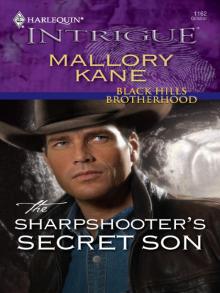 The Sharpshooter's Secret Son
The Sharpshooter's Secret Son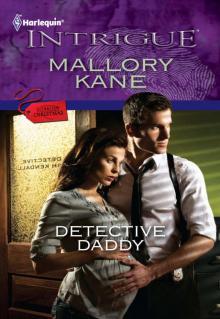 Detective Daddy
Detective Daddy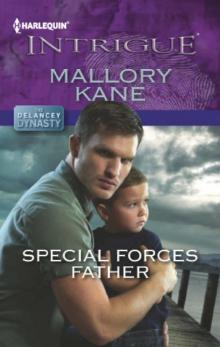 Special Forces Father
Special Forces Father Blood Ties in Chef Voleur
Blood Ties in Chef Voleur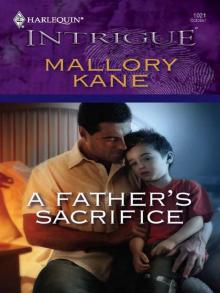 A_Father's Sacrifice
A_Father's Sacrifice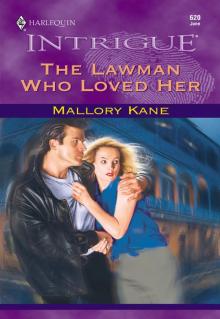 The Lawman Who Loved Her
The Lawman Who Loved Her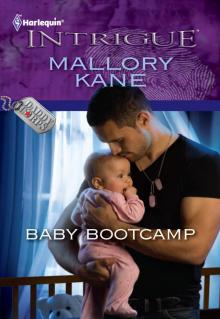 Baby Bootcamp
Baby Bootcamp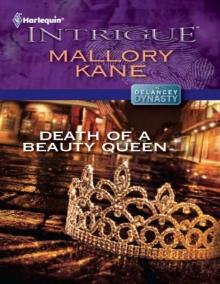 Death of a Beauty Queen
Death of a Beauty Queen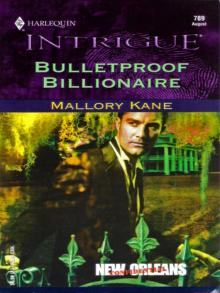 Bulletproof Billionaire
Bulletproof Billionaire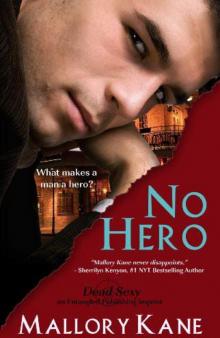 No Hero
No Hero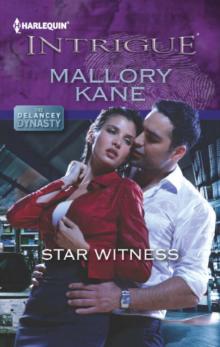 Star Witness
Star Witness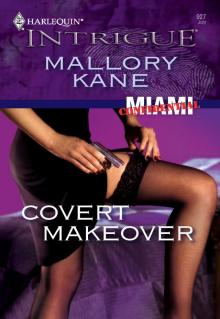 Covert Makeover
Covert Makeover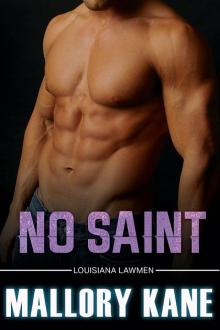 No Saint
No Saint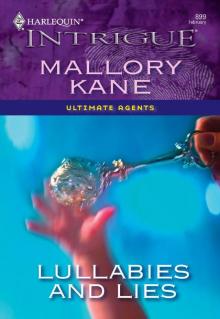 Lullabies and Lies
Lullabies and Lies The Colonel's Widow?
The Colonel's Widow?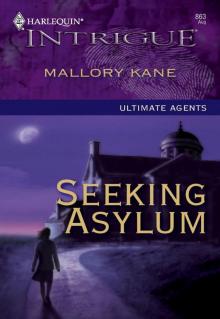 Seeking Asylum
Seeking Asylum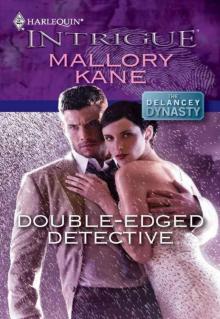 Double-Edged Detective
Double-Edged Detective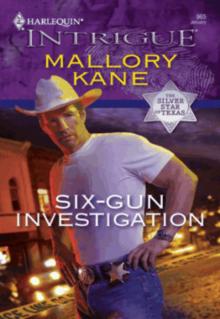 Six-Gun Investigation
Six-Gun Investigation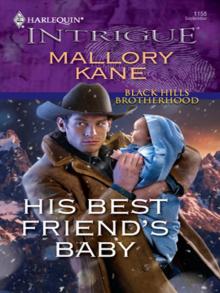 His Best Friend’s Baby
His Best Friend’s Baby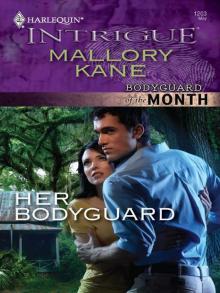 Her Bodyguard
Her Bodyguard Bodyguard/Husband
Bodyguard/Husband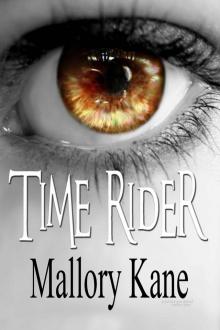 Time Rider (Rise of the Skipworths)
Time Rider (Rise of the Skipworths) It's In His Kiss
It's In His Kiss Ultimate Agents - High School Reunion
Ultimate Agents - High School Reunion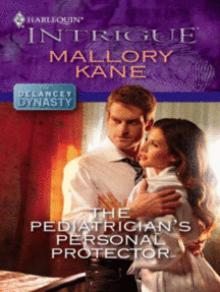 The Pediatrician's Personal Protector
The Pediatrician's Personal Protector Private Security
Private Security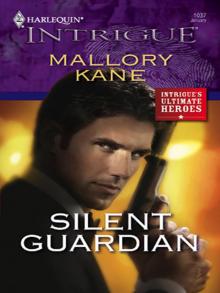 Silent Guardian
Silent Guardian September Rain
September Rain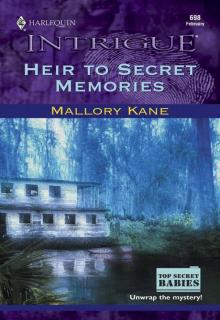 Heir to Secret Memories
Heir to Secret Memories High School Reunion
High School Reunion